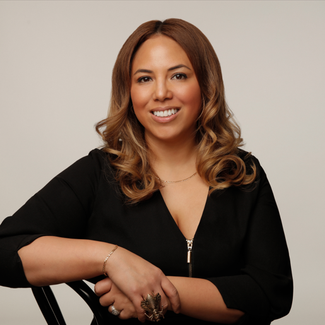
Partner Content
Beyond the numbers … all we want is an Inclusive Experience
VMLY&R Commerce's Global Digital Chief and leader of the UK Inclusion Practice on how organisations need to create an inclusive north star that aligns with their brands
28 February 2023
The business case for diversity and inclusion has long been made. As far back as 2019, The World Economic Forum reported it an overwhelming necessity: it fuels innovation, uplifts talent recruitment and retention, accelerates diverse perspectives, and increases productivity and performance. It also helps businesses to impact society from within.
And data confirms this. According to Fundera, diverse companies are 35 per cent more likely to perform better, while diverse teams are 70 per cent more likely to capture and penetrate new markets.
The good news is that many companies are well on their way to transformation. Holding a well-stocked armoury including Employee Resource Groups (ERGs) – employee-led communities curated by shared characteristics and life experiences; mandatory training across the full organisational structure; DE&I manager; measurable acquisition and retention KPIs.
So far, so good.
In my view, it’s now time to step up. To move from measurement and move towards establishing a true inclusive experience. A fact backed by a recent Deloitte survey reporting that a massive 80 per cent of employees consider inclusion an essential factor when it comes to choosing an employer.
The truth is, many organisations fail to create an inclusive north star that aligns with its brand platform. One that’s authentic and differentiated. Consider this for instance: if all businesses are now home to ERGs, training, and KPIs - why choose to buy their brands, or, as an employee, why choose to join them as a company?
Nearly half (48 per cent) of Gen Z employees (aged 18-24) say they would switch jobs for a better employee experience, even if it meant taking a pay cut. A similar proportion (44 per cent) of millennials (24-34) say they would do the same.
People are willing to act.
An inclusive company culture will separate itself from any possible unconscious bias in the work environment. Employees feel included irrespective of who they are and how they identify themselves.
True inclusion creates a feeling of belonging. It supports and creates experiences that pull under-served communities into the heart of business with meaning and authenticity.
Here are three ways companies can achieve this.
1. Create an inclusive experience rooted firmly in your brand's truth and culture.
Castrol is bringing car service transparency to women; Target is helping black-owned businesses reach its digital and physical shelves and No7 is creating inclusive campaigns for skincare and beauty. All great examples of how experiences are authentically connected to a brand platform.
2. Focus on adding value to communities where you can have the most impact.
Many organisations want to develop experiences that serve the full spectrum of human diversity. While the intent should be applauded, the truth is – it just isn’t possible at least not at the same time. From identity, ethnicity and culture, lifestyle and ability, and all the intersections in between, brands can easily find themselves impacting nothing at all.
3. Prioritise tangible ideas so your vision is robustly supported by action.
Connected brand experiences can deliver business value eight-fold. Map employee and customer journeys and pinpoint the moments that matter to them, from the employee onboarding process, in-store buying experience, or navigating your site. Combine experience expertise with diverse creative voices to ideate how your brand can make a real difference in how people feel understood and included.
As Maya Angelou famously said, “I've learned that people will forget what you said, people will forget what you did, but people will never forget how you made them feel.”
Debbie Ellison is the Global Chief Digital Officer at VMLY&R Commerce and leads the UK Inclusion Practice - a strategic consultancy that works with clients to bring about sustainable cultural change within their organisations




